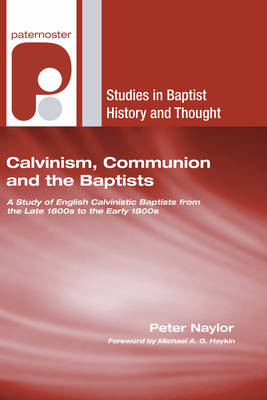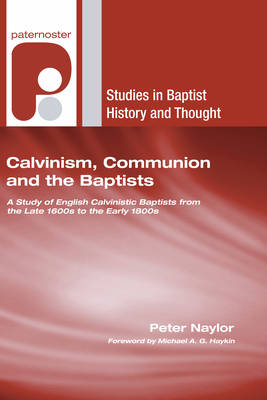
- Afhalen na 1 uur in een winkel met voorraad
- Gratis thuislevering in België vanaf € 30
- Ruim aanbod met 7 miljoen producten
- Afhalen na 1 uur in een winkel met voorraad
- Gratis thuislevering in België vanaf € 30
- Ruim aanbod met 7 miljoen producten
Zoeken
Omschrijving
This book is concerned with English Calvinistic Baptist churches from the later 1600s until the early 1800s, arguing that there was then no connection between ""restricted communion"" and ""hyper-"" or ""high"" Calvinism. A minimal definition of ""restricted communion"" would be the reception at the Baptist communion of those alone who had been immersed in water upon a profession of faith. A sketch of English Calvinistic Baptists in the years preceding and following the 1689 Act of Toleration stresses that they were a denomination other than that of the ""General"" Baptists, and that most Baptists, irrespective of party lines, were de facto ""Strict Baptists."" Historical arguments for and against restricted communion will demonstrate that during that period there was no definitive link between the Particular Baptists' communion discipline and their interpretations of Calvinism. Attention is given to John Gill's and Andrew Fuller's interpretations of the relation between the atonement and evangelism. ""Was strict communion at one time the norm among British Baptists? Peter Naylor threads his way through a complex matter as it has affected and affects varying strands of Baptist thought."" --Kenneth Dix, Secretary of the Strict Baptist Historical Society ""Peter Naylor does an admirable job of sorting through the related issues of Baptist restricted communion and high Calvinism, bringing to light new perspectives on contemporary issues. The book deserves careful attention."" --Timothy George, Beeson Divinity School, Samford University ""This book is an important contribution to Baptist historical scholarship. It is sometimes assumed that closed communion and high Calvinism have an integral relationship. Peter Naylor shows that this is not the case."" --Ian M. Randall, Spurgeon's College, London Peter Naylor, a retired Baptist minister, has, with his wife, two daughters and two grandchildren. Having lectured, mainly in India and Sri Lanka, his aspiration now is to focus upon biblical studies.
Specificaties
Betrokkenen
- Auteur(s):
- Uitgeverij:
Inhoud
- Aantal bladzijden:
- 306
- Taal:
- Engels
- Reeks:
- Reeksnummer:
- nr. 7
Eigenschappen
- Productcode (EAN):
- 9781597527408
- Verschijningsdatum:
- 1/09/2007
- Uitvoering:
- Paperback
- Formaat:
- Trade paperback (VS)
- Afmetingen:
- 156 mm x 226 mm
- Gewicht:
- 349 g

Alleen bij Standaard Boekhandel
+ 99 punten op je klantenkaart van Standaard Boekhandel
Beoordelingen
We publiceren alleen reviews die voldoen aan de voorwaarden voor reviews. Bekijk onze voorwaarden voor reviews.











